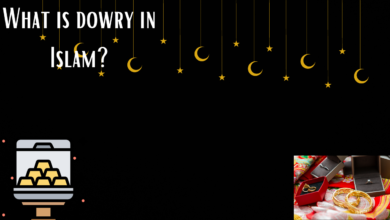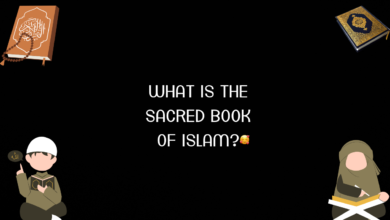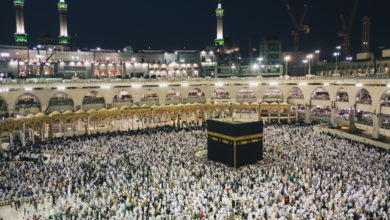Coca Cola Meaning In Islam
Unlocking the Meaning of Coca Cola in Islam: Exploring Ingredients, Culture, and Controversies
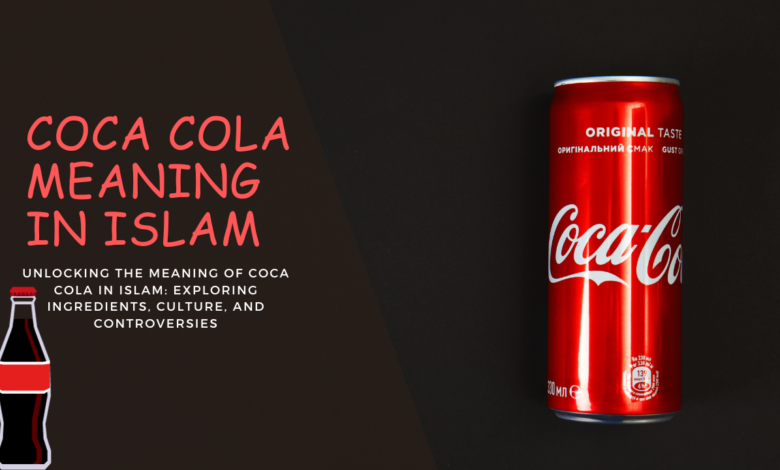
Coca Cola Meaning In Islam
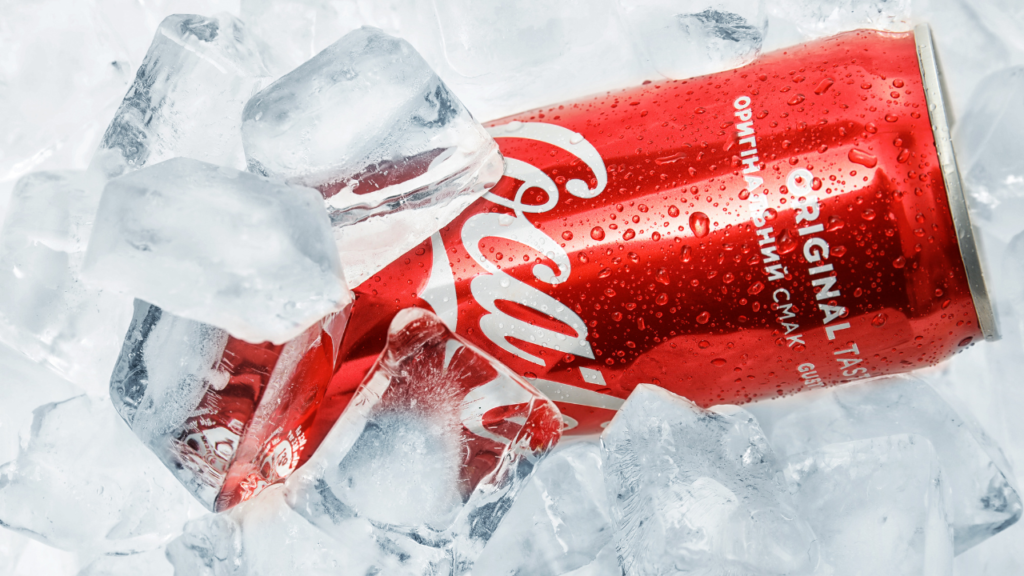
Introduction
Coca Cola, a beverage that needs no introduction, has found its way into the hearts and hands of people across the globe. The effervescent bubbles and unmistakable taste have become synonymous with moments of joy and celebration. But, have you ever wondered about the meaning of Coca Cola in Islam?
The Meaning of Coca Cola in Islam
Coca Cola’s journey began in the late 19th century, and over the years, it has become a household name. However, its popularity hasn’t exempted it from scrutiny in religious contexts, especially in Islam. Muslims, adhering to dietary laws, often question the ingredients of this iconic beverage.
Ingredients scrutiny has led to debates over the permissibility of consuming Coca Cola. Many Muslims seek reassurance through Halal certification, a process that ensures the product adheres to Islamic dietary laws. The perception among Muslims varies, with some embracing it as a harmless pleasure and others remaining cautious about its consumption.
Cultural Impact
Beyond its ingredients, Coca Cola has become a symbol that transcends borders. It has seamlessly integrated into diverse cultures, becoming a staple in social gatherings worldwide. In Muslim-majority countries, Coca Cola has adapted to local tastes, further solidifying its place in the hearts of communities.
Understanding Coca Cola for Beginners
For those new to the intricacies of Coca Cola, let’s break it down. The ingredients include carbonated water, high fructose corn syrup, caramel color, phosphoric acid, natural flavors, and caffeine. The manufacturing process involves blending these ingredients, carbonating the mixture, and ensuring quality control.
Addressing common misconceptions, it’s essential to clarify that Coca Cola does not contain any alcohol, making it permissible for most Muslims to consume.
Coca Cola Marketing in Islamic Regions
The success of Coca Cola lies not just in its formula but also in its marketing strategies. The company tailors campaigns for cultural sensitivity in Islamic regions, respecting local customs and values. Success stories abound, but challenges persist, requiring constant adaptation to consumer feedback and responses.
Social Responsibility and Corporate Ethics
Coca Cola’s impact goes beyond the taste buds. The company actively engages in social responsibility and corporate ethics in Muslim communities. Initiatives range from supporting local causes to sustainability efforts that resonate with environmentally conscious consumers.
Also Check
The Flavor of Unity
Coca Cola’s role in breaking cultural barriers is undeniable. Shared experiences over a bottle of Coca Cola create a sense of community and inclusivity. The beverage becomes a bridge connecting people from different backgrounds, fostering unity.
Controversies and Debates
No brand as iconic as Coca Cola is without its share of controversies. Past incidents and reactions from the Muslim community have sparked debates. Coca Cola’s responses to these issues and resolutions adopted are pivotal in understanding the dynamics at play.
The Future of Coca Cola in Islamic Context
As perspectives evolve, so does the future of Coca Cola in the Islamic context. Will there be changes in marketing strategies? How will consumer feedback shape Coca Cola’s trajectory? These are questions that only time will answer.
Conclusion
In the realm where culture meets carbonation, Coca Cola has established itself as more than just a beverage. It’s a symbol of shared joy, a bridge between cultures, and a testament to the fluid nature of globalization. As debates persist, and cultures continue to evolve, Coca Cola remains a refreshing constant in an ever-changing world.
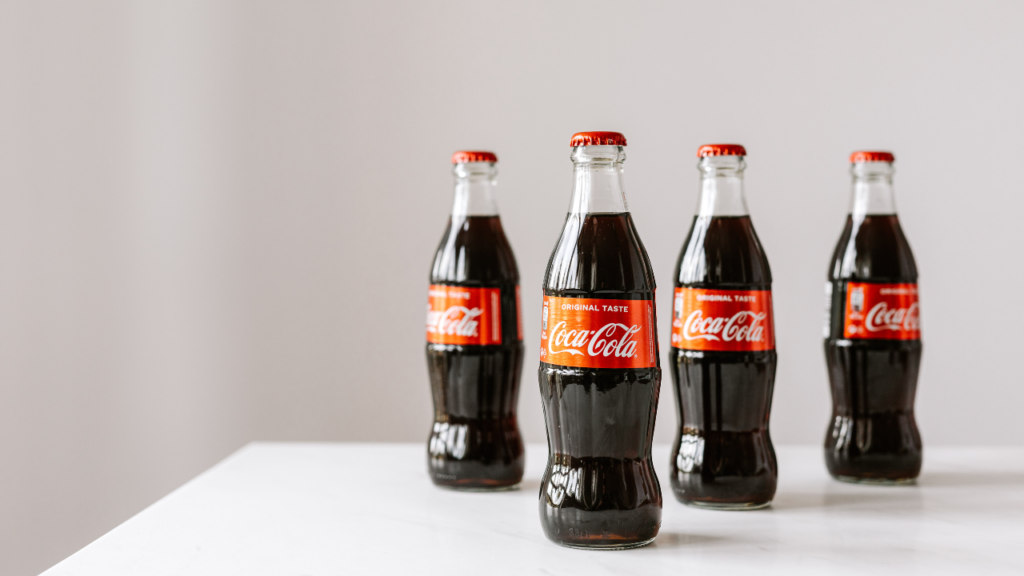
FAQs
Is Coca Cola Halal?
Yes, in most cases, Coca Cola is considered Halal, but it’s advisable to check for Halal certification.
What ingredients in Coca Cola might be scrutinized from an Islamic perspective?
Some Muslims scrutinize ingredients, especially natural flavors, to ensure they comply with Islamic dietary laws.
How does Coca Cola address Halal certification for its products?
Coca Cola ensures compliance with Halal standards and often seeks certification for its products.
Are there controversies surrounding Coca Cola in Islamic communities?
Yes, past incidents have sparked debates and reactions within the Muslim community.
Does Coca Cola contain alcohol?
No, Coca Cola does not contain alcohol, making it generally permissible for Muslims.
How does Coca Cola adapt its marketing for Islamic regions?
Coca Cola tailors its marketing campaigns by respecting local customs and values in Islamic regions.
What social responsibility initiatives does Coca Cola undertake in Muslim communities?
Coca Cola engages in various social responsibility initiatives, supporting local causes and implementing sustainability efforts.
Does Coca Cola play a role in breaking cultural barriers in Muslim-majority countries?
Yes, Coca Cola fosters shared experiences, promoting unity and inclusivity.
How do Muslims generally perceive Coca Cola?
Perceptions vary, with some Muslims considering it a harmless pleasure, while others remain cautious about consumption.
How is Coca Cola evolving in the context of Islamic culture?
Coca Cola continues to adapt to evolving perspectives, potentially influencing changes in marketing strategies and consumer engagement.
